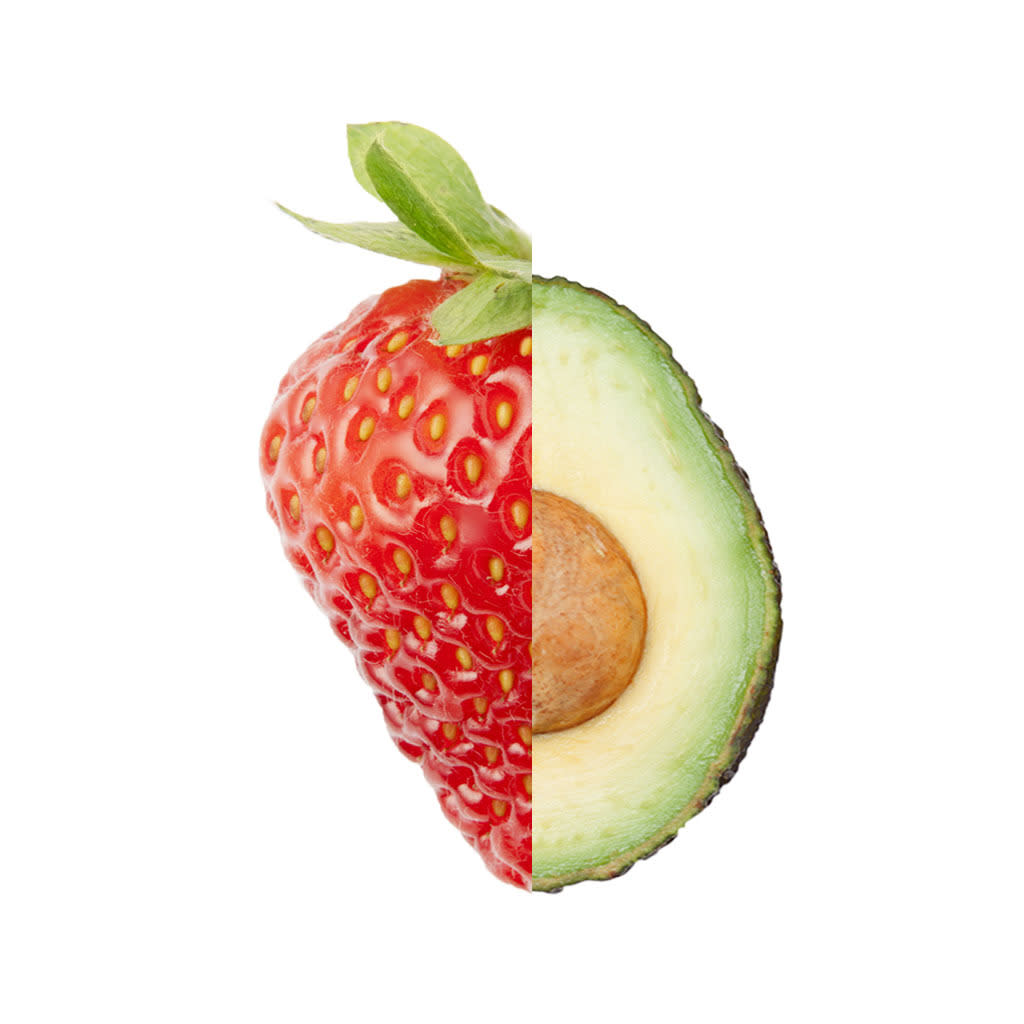This Is the Most Pesticide-Laden Fruit You Can Buy

Beware of the conventional strawberry, the Environmental Working Group warns. The avocado, meanwhile, is the safest. (Photo: Getty Images/Yahoo Beauty)
For the past five years, the apple has bested all other fruits and vegetables as the most toxic produce selection on the market. However, according to the Environmental Working Group’s 2016 Dirty Dozen report, which measures the levels of pesticides on American produce each year, a new fruit is taking the title: strawberries.
Although packed with antioxidants, conventionally grown strawberries are also laden with pesticides. According to the EWG, 98 percent of the washed strawberry samples examined by federal officials had detectable pesticide residue. Roughly 40 percent of the samples contained 10 or more pesticides, some with as many as 17.
Related: The Weird Way Climate Change Screws With Your Diet
But while strawberries take the cake as the dirtiest fruit, the summer staple isn’t the only item that you need to watch out for. Also on this year’s Dirty Dozen: Peaches, nectarines, and apples had at least one pesticide on 98 percent of the samples tested, and potatoes were loaded with the most pesticides by weight than any other item in the produce section. This is how the whole list played out:
Strawberries
Apples
Nectarines
Peaches
Celery
Grapes
Cherries
Spinach
Tomatoes
Sweet bell peppers
Cherry tomatoes
Cucumbers
Strawberries are typically grown in California, where each acre of land is doused with 300 pounds of pesticides. “It is startling to see how heavily strawberries are contaminated with residues of hazardous pesticides, but even more shocking is that these residues don’t violate the weak U.S. laws and regulations on pesticides in food,” said EWG senior analyst Sonya Lunder in a press release.
Related: Canadian Grocery Store Is in Hot Water Over Pre-Peeled Avocados
Lunder says the Environmental Protection Agency’s pesticide policy is “too lax” and suggests it should be updated with the influx of new research on chemical exposure. Some studies indicate that insecticides, which are linked to conditions like ADHD, may be especially harmful for growing children. Research also shows that an organic diet can have a dramatic impact, virtually eliminating pesticides from the body of elementary-aged kids after five days.
But you don’t necessarily need to buy all organic produce (which can be pricey), says Lunder. “EWG’s Shopper’s Guide to Pesticides in Produce is a tool consumers can use in the grocery store,” she tells Yahoo Beauty. “The Clean Fifteen list are those conventional fruits and vegetables with very few pesticide residues, and the Dirty Dozen are best to buy organic.”
You can rest easy and buy the 2016 Clean Fifteen conventionally, says Lunder. None of the produce on the list tested positive for upward of four pesticides, and only a smattering had more than one. Avocados took the top spot for cleanliness, with less than 1 percent of samples testing positive for pesticide residue.
Avocados
Sweet corn
Pineapple
Cabbage
Sweet peas (frozen)
Onions
Asparagus
Mangos
Papayas
Kiwi
Eggplant
Honeydew melon
Grapefruit
Cantaloupe
Cauliflower
Let’s keep in touch! Follow Yahoo Beauty on Facebook, Twitter, Instagram, and Pinterest.

